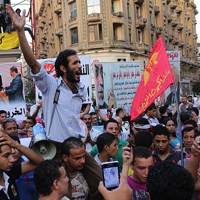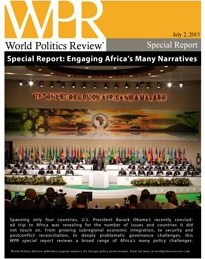
On Wednesday, Gen. Abdel-Fattah El-Sisi, Egypt’s military chief of staff, announced that the country’s elected president, Mohammed Morsi, had been removed from office. Egypt’s constitution will be suspended; Adly Mansour, the chief judge of the Constitutional Court, will temporarily assume the presidency and oversee a transitional government until new elections can be held at a date yet to be determined. The events of the “second Egyptian revolution” have effectively terminated the experiment as to whether the Muslim Brotherhood, having won parliamentary and presidential elections last year, would be able to construct a democratic regime. They now present the Obama administration […]



